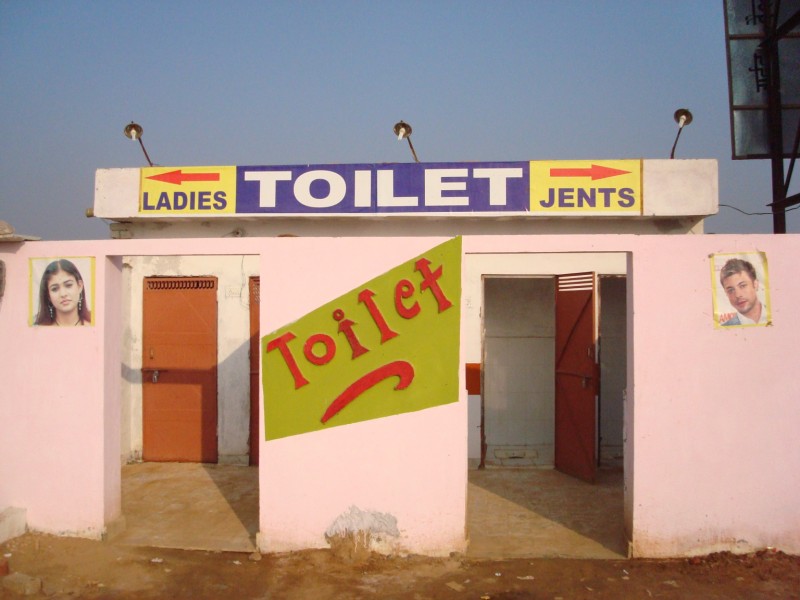 [1]
[1]The lack of public toilets in urban areas is a major cause of public urination in India. Image by the author.
Public urination [2] is a problem in many South Asian countries, especially India. Its not uncommon to see men urinating in public on walls, alleys and corners. The lack of public toilets is an issue, but poor understanding of hygiene and public decency also contribute to the problem. Blogger Udaas Priest [3] has a hilarious perspective on why Indian men urinate on public walls.
There have been many attempts to solve this issue by activists and different organizations, including public campaigns [4] in Delhi, cleaning and painting the walls [5] and maintaining them, and shaming offenders in Rajasthan [6] by drumming and blowing whistles. But those efforts have not made a visible impact.
The question remains: “How can India stop people urinating in public?” [6]
The Clean Indian, an anonymous anti-public urination activist group, has come up with one possible solution [7] to stopping public urination in Mumbai.
In the above video [8] uploaded to YouTube by The Clean Indian, you can see their Pissing Tanker in action. The group, whose members wear masks to conceal their identities, patrols Mumbai city with their giant yellow water tanker and sprays water on those urinating in public.
Their action has been greeted with mixed reactions from Indian netizens. Some supported the effort:
good idea.. but how can they take action for not providing public toilets? The Pissing Tanker: http://t.co/RZCdJM2ODp [9] via @YouTube [10]
— Cable Sankar (@cablesankar) May 3, 2014 [11]
Wow, if true, this is one idea. Though India also needs public urinals. The Pissing Tanker: https://t.co/udhbE9IWhf [12]
— Nishant Dahiya (@nprnishant) May 2, 2014 [13]
The Pissing Tanker “You Stop, We Stop”: http://t.co/NtOdFWXqqH [14] honestly, I've wanted to see this done since I was like 7. Opinions?
— Shāmbhavi (@Shamwoo) May 2, 2014 [15]
But not everyone was happy:
The Pissing Tanker – You Stop, We Stop http://t.co/lB0vowFY7B [16] Entertaining, but clearly crossing the line, into vigilante justice.
— Karthik Srinivasan (@beastoftraal) May 2, 2014 [17]
Stupid attention-seekers. As if a colossal waste of tanker water can stop all of India from pissing in public. Go… http://t.co/hUT92n6Xn2 [18]
— Bijoy Venugopal (@bijoyv) May 2, 2014 [19]
Blogger Manish Agarwal [20] argued that the tanker is not the right solution to stopping public urination. He listed some drawbacks of the idea:
- What is the guarantee that person will not do same thing again.
- How can ‘anti public-urination activists’ justified the use tanker for this purpose which run on subsidized diesel.
- Last but not least, What about the WATER? All of us know water is very precious and a big population all over the world did not have access of water (forget clean or not).
There have been interesting debates [21] surrounding the topic, whether it is a cultural issue rather than hygienic, whether it is a problem at all [22] and whether people should bother. Comparing Indian practices with practices in other countries will not help much in the search for a solution. However, keeping walls maintained as well as increasing public awareness of cleanliness and health and safety issues certainly can't hurt.